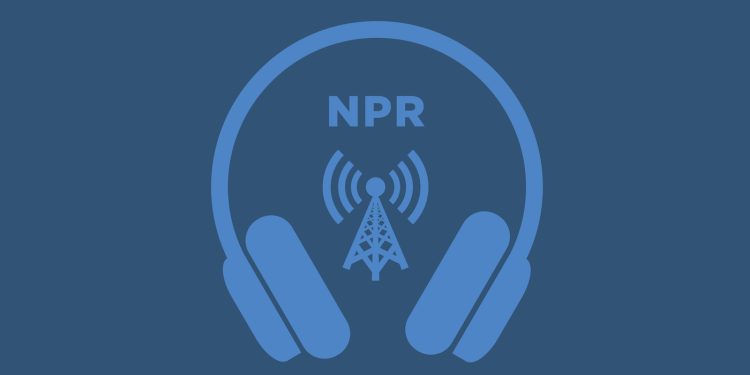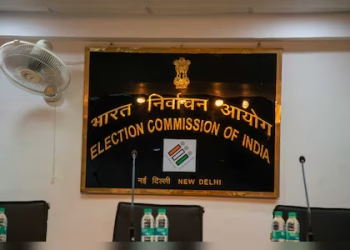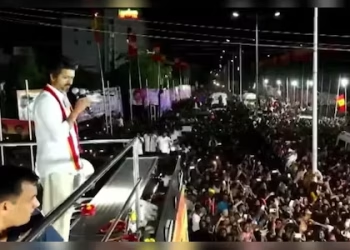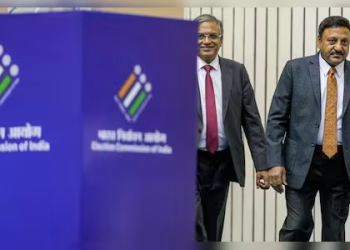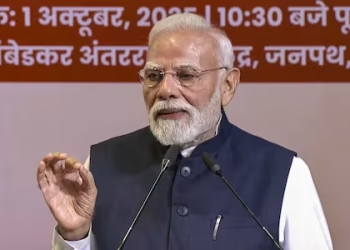The government shutdown continues and House Speaker Mike Johnson refuses to swear in a Democratic elected representative. President Trump believes he has the momentum to reach a peace deal between Russia and Ukraine.
SCOTT SIMON, HOST:
Joining us is Ron Elving, senior political contributor. Ron, thank you very much for being with us.
RON ELVING, BYLINE: Nice to be with you, Scott.
SIMON: Of course, there were large protests during the first Trump administration, including women’s marches, many demonstrations against his immigration policies. How do these No Kings protests compare?
ELVING: The day after Trump’s first inauguration in 2017, nearly half a million people – most of them women – marched through Washington’s Mall. There were about 400,000 in New York, 250,000 in Chicago, etc. But as we just heard, organizers are expecting crowds at more than 2,000 venues this year, and they’re hoping attendance will number in the millions. These previous protests were largely driven by abortion rights and women’s rights advocates. Current protests cover a broader range of issues: the rule of law, constitutionally guaranteed individual rights, and cuts to health and education funding. But at the same time, the overriding issue today is the rejection of autocracy, the rejection of the rule of one.
SIMON: We are now on day 18 of the government shutdown. Does this become a confrontation – a stop like no other?
ELVING: In past shutdowns, there have been serious efforts to resolve the underlying issues, to negotiate between the parties and come to some sort of agreement. That’s the difference. In the past, there was a general consensus that the damage caused by the shutdown, the harm caused to ordinary Americans, was greater than the victory of one side or the other. There was a feeling that there was an us – not just an us versus them. And we don’t see it now. Whatever the Democrats’ responsibility for this shutdown, at least they are here in town, in Washington, ready to talk. The president and his party refused, saying there was nothing to negotiate. The House has not held a voting session since the summer.
SIMON: President Mike Johnson is also refusing to swear in Rep.-elect Adelita Grijalva. She won her special election in Arizona more than three weeks ago. Arizona attorney general threatens legal action if she doesn’t take oath. What reasons did the speaker give to justify this delay?
ELVING: Johnson said he didn’t want to swear in Ms. Grijalva until the House was back in session so she could have the full ceremony. Except that earlier this year, he swore in two Republicans elected in special elections while the House was not in session — with or without ceremony. We can’t know Mike Johnson’s mind or hear his conversations with the president, but people are wondering if the real difference here is that swearing in Grijalva could cost Mike Johnson control over the Epstein files issue. Once she is a member, there will be a bipartisan majority on the petition to force a vote on releasing these files, something Mike Johnson fought hard to block.
SIMON: And Trump’s former national security adviser, John Bolton, pleaded not guilty yesterday to charges of mishandling classified documents. What do you think, Ron?
ELVING: We’re now hoping to have a trial to verify whether Bolton shared classified information in messages he sent to family members and kept copies of those messages at home. Another thought, of course, goes back to the piles and piles of documents — many of them classified — found at Mar-a-Lago in 2017, all the subject of a subpoena that Trump ignored after leaving office.
SIMON: And of course, Ron, last week we talked about President Trump’s success with the ceasefire agreement between Israel and Hamas. Yesterday, the president said he believed the agreement would provide impetus to negotiations between Russia and Ukraine. Does this seem to be the case?
ELVING: This has been a great hope for everyone who wants these wars to end. But Trump has not yet succeeded in shifting his momentum in the Middle East to Ukraine. He pressured Russia to come to the table. But this week he had a phone call with Vladimir Putin, and after that he said he thought Putin wanted a deal, and then Trump sat down with Ukrainian President Zelenskyy in the Oval Office and poured cold water on the long-range missiles he had talked about sharing with Ukraine. This is obviously a big disappointment for Zelensky.
SIMON: NPR’s Ron Elving. Thank you very much for being with us. We’ll talk later.
ELVING: Thank you, Scott.
Copyright © 2025 NPR. All rights reserved. Visit the terms of use and permissions pages on our website at www.npr.org for more information.
The accuracy and availability of NPR transcripts may vary. The text of the transcript may be edited to correct errors or match updates to the audio. Audio on npr.org may be edited after its original broadcast or publication. The authoritative record of NPR’s programming is the audio recording.


